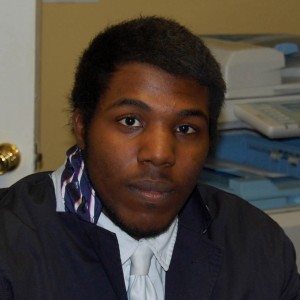OXFORD, Miss. – Students who begin their college course work at Mississippi community colleges before transferring to one of the state’s public four-year universities can receive their associate’s degree by simply saying “yes” during the enrollment process. The program, called reverse transfer, began as a pilot at Ole Miss and is now available at all of Mississippi’s institutions of higher learning.
Ole Miss began the pilot in 2012 by collecting five years’ worth of data about students who came to the university from a community college and could potentially benefit from such a program, said Charlotte Fant Pegues, UM assistant provost. The provost’s office collaborated with other campus entities to reach out to approximately 1,600 students. Although the pilot initially included only Northeast Community College, Pegues said she quickly saw the need for expansion.
“Although a student may have come to us from NECC, the student may have actually earned the required credits from a different community college and could therefore receive a degree from that particular institution,” Pegues explained. “We have now been able to engage advisers from all of Mississippi’s community colleges to help make students aware of this program as they transfer out to one of our public universities.”
To take advantage of the program, a student must have completed at least 25 percent of the required hours from the community college. The student simply gives the university permission to share his or her transcript with the community college when the requisite number of hours are completed. Once the university shares the transcript, an associate’s degree may be awarded.
“As a registrar, I’ve seen students leave school for any number of reasons,” Pegues said. “This helps ensure they obtain an associate’s degree and hopefully, continue working toward the four-year degree. Having the associate’s degree helps in the job market.”
For Jamal Bankston, a junior dietetics major who transferred from Itawamba Community College, the program is welcome news.
“The reverse transfer is a fantastic way for someone to keep working hard, but for whom going to a community college for a third year would be a deterrent or just financially impossible,” he said. “Transferring to a university and starting on a B.A. while finishing the A.A. is great. Having the A.A. degree means I’m on my way to having a successful and impressive career. It really shows my future employer that I finish what I start, and I work hard to better myself.”
Research shows that students who complete the associate’s degree are more likely to also complete the four-year degree. Besides allowing a degree to be earned by the student, community colleges benefit from the higher graduation rates and the state sees an improved climate of achievement.
“The most important strategy our state can implement to be more competitive over the next 10 years is to increase the number of adults with a credential of value beyond high school,” said Hank M. Bounds, Mississippi commissioner of higher education. “This includes both associate’s degrees and bachelor’s degrees. Helping students complete one credential while working toward another is beneficial to students, community colleges, universities and the state.”
UM Provost Morris Stocks, who served as co-chair of the pilot program, agrees that the reverse transfer benefits numerous parties.
“The reverse transfer agreement provides benefit to the community college system, the IHL system and, most importantly, our transfer students,” Stocks said. “After learning that other university systems had implemented similar plans, the University of Mississippi and Northeast Mississippi Community College agreed to create a pilot program. The successful outcome of this joint venture led to the formalization of a systemwide agreement, which resulted in a strong cooperative partnership, providing more opportunities for our students.”
